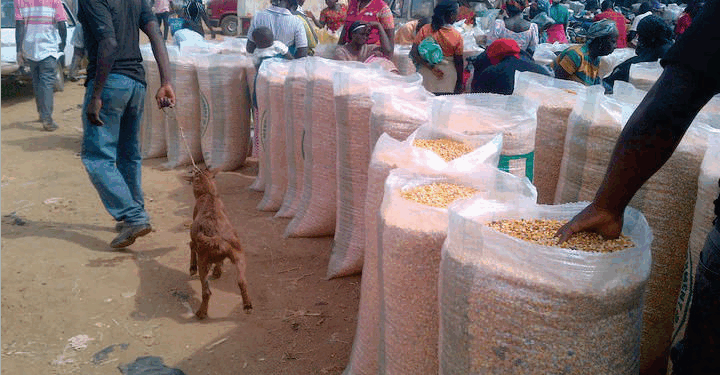Peasant farmers count their losses
For smallholder farmers like Mrs Veronica Iorwuese, a widow from Ye, Guma Local Government Area of Benue State, the situation has been devastating. She said she could no longer pay her children’s first-term school fees after investing all her resources in farming.
“Before now, I used to sell a basin of corn to buy one litre of herbicide, but now proceeds from a basin of corn cannot buy a litre of herbicide, let alone a bag of fertiliser. “I used more than ₦50,000 to farm maize, but now I cannot get half of that amount. I went to my children’s school; their school fees have increased, and I am stranded.
“If only I knew, I would have kept the little I had instead of wasting my time and resources on farming. I am certain that I will not be able to farm next year because I no longer have the resources to afford herbicides, pesticides and fertiliser, among many other farm inputs,” she lamented.
The debate over the Federal Government’s food price reduction policy rages on. While the
administration insists the measure nbrings immediate relief to millions of Nigerians, critics warn it could cripple domestic agriculture, worsen unemployment and deepen long-term food insecurity.
Mr Vitalis Tarnongu, Chief Executive Officer of Teryima NigeriaLimited, an agricultural company based in Benue State, and also the State Coordinator of the Federation o f A g r i c u l t u r a l C o m m o d i t y Associations of Nigeria (FACAN), described the Federal Government’s price control efforts as anti-farmer.
Tarnongu argued that the decision was a case of “putting the cart before the horse,” as the logical step should have been to address the variables that caused the price hikes in the first place.

“Is it not logical for the government to slash the prices of inputs before farm produce? If the government means well, it should be inputs first because it is through the inputs that farmers cultivate, plant and nurture the crops to harvest,” he said. (NAN)



